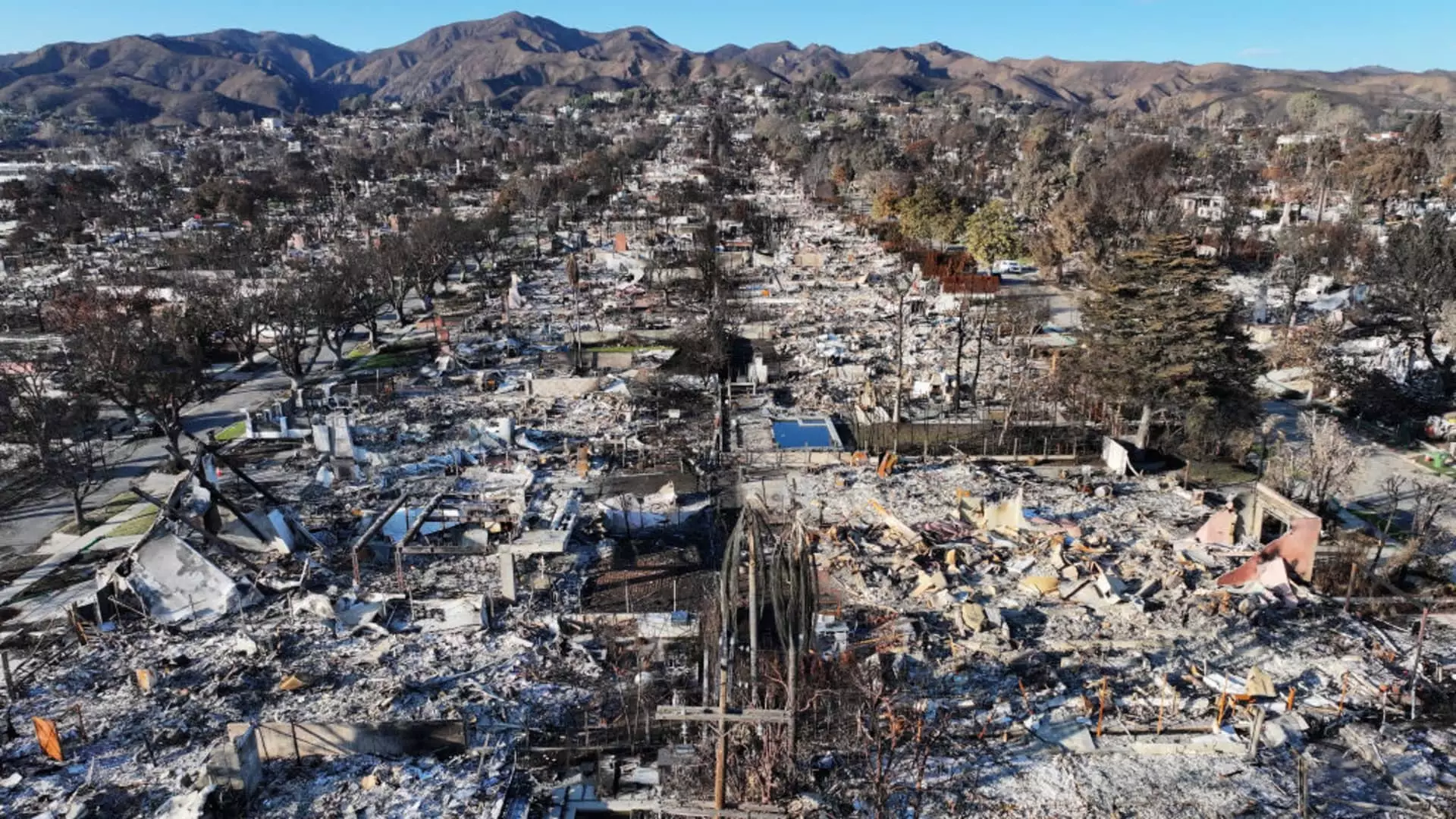Germany’s reinsurers are feeling the brunt of a climate crisis that grimly illustrates the far-reaching consequences of severe weather patterns. In the first quarter, Munich Re and Hannover Re, titans in the reinsurance sector, reported staggering losses due to the catastrophic wildfires that recently engulfed areas in Los Angeles. With total claims amounting to a jaw-dropping €1.73 billion ($1.9 billion), it’s evident that these firms are not just absorbing financial setbacks; they are wrestling with the existential threat posed by increasing natural disasters driven by climate change.
The phrase “prudent management” has been thrown around by executives like Munich Re’s CFO, Christoph Jurecka, who euphemistically downplayed the catastrophe’s impact. Yet, can we realistically refer to a 48% decline in net profits—down to €1.1 billion—as a mark of resilience? This dissonance between corporate speak and on-the-ground reality begs deeper scrutiny into not just the firms’ financial acumen, but also their broader responsibility within our increasingly volatile climate landscape.
The Nature of Reinsurance: A Hidden Vulnerability?
Reinsurance companies act as a safety net for primary insurers, only stepping in after significant losses have already taken a toll. In Munich Re’s case, they required primary insurers to absorb approximately €400 million before they contributed, a threshold that speaks volumes about how risk is managed and quantified in the reinsurance landscape. As the wildfires raged in California, what does it say about the industry’s preparedness when they find themselves repeatedly caught off-guard by such disasters?
The substantial losses—€1.1 billion primarily in the property-casualty segment—reveal an almost naive dependence on historical data that has proven inadequate in capturing the relentless pace of climate disruptions. The claims from just a few fiery events have rendered entire segments of business unprofitable, exposing the fact that traditional risk models are increasingly failing in their predictive capacities.
An Industry at a Crossroads
The financial market’s immediate reaction was telling: both Munich Re and Hannover Re stocks saw declines of around 4%, hitting their positions hard on the European Stoxx 600 index. One must ponder if these companies are truly prepared for what the future holds. With opinions from analysts signaling a mixture of negativity and neutrality, the underlying sentiment is clear—reinsurers are standing at a critical juncture and must reevaluate their exposure to risk.
Some analysts, like those from RBC Europe, exhibit a negative sentiment towards Munich Re while recognizing that losses from the wildfires fell shy of prior estimates. This suggests that optimism can be misplaced amidst an uncertain future. If the forecast is less favorable than initially presumed, what significant actions will these companies take to avert worse losses down the line? The optimistic approach voiced by Jurecka rings hollow unless tangible changes are made to adapt to the changing climate realities.
The Ethical Dilemma: Profit Amid Catastrophe
As reinsurers grapple with these significant losses, one can’t help but question the ethical implications of their business model. Do they truly contribute to societal resilience, or do they merely commercialize the suffering brought on by climate change? When corporate earnings are reported alongside rising natural disasters, the optics become disturbing.
Consider the stark reality: While reinsurers are tasked with providing a safeguard, they also profit from the disaster. Such a dual role must undergo scrutiny as the lines blur between safeguarding against losses and perpetuating a cycle that profits from them. The capitalist framework that allows these companies to thrive could be counterproductive to the collective societal goal of feeling secure in the face of impending climate-related upheavals.
Ultimately, we must reflect on whether reinsurance companies like Munich Re and Hannover Re can rise to meet the challenges posed by a new era marked by the escalation of natural disasters, or if they will be forever caught in a cycle of reacting to the consequences of climate change rather than proactively engaging with the issue at its roots. The challenge lies not merely in balancing profit and loss but in reshaping an industry to address the ethics of climate change in a way that safeguards humanity’s future.

